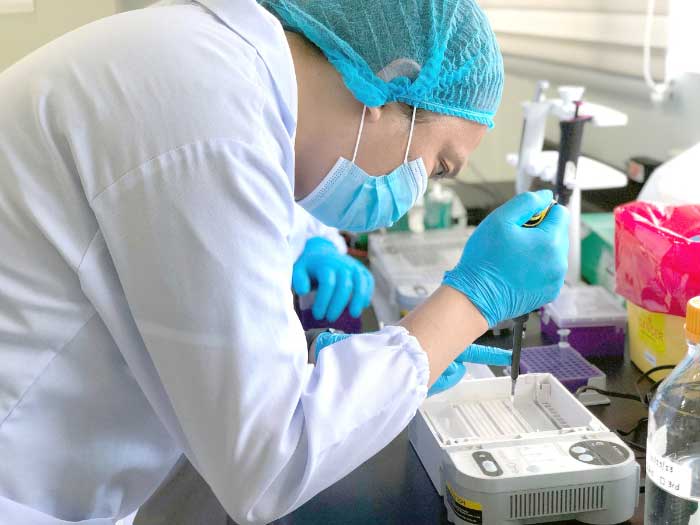
By Joseph Bernard A. Marzan
Iloilo City residents with deep roots in the city are being eyed as subjects of a national genomics project which aims to increase public involvement in genome research and explain our national identity through our DNA.
Claire Juanico, Research Coordinator for Region 6 of the Filipino Genomes Research Program (FGRP) and Project Development Officer II of the Philippine Genome Center (PGC) Visayas, discussed the project in Daily Guardian on Air via Aksyon Radyo-Iloilo on Friday.
FGRP is a research initiative funded by the Department of Science and Technology-Philippine Council for Health Research and Development (DOST-PCHRD) and is being implemented by the DNA Analysis Laboratory of the Natural Sciences Research Institute (NSRI) at the University of the Philippines (UP) Diliman.
It was launched at UP Diliman on July 15, 2022, coinciding with the laboratory’s 26th founding anniversary.
Juanico explained that the project’s purpose is to increase the representation of and involve more Filipinos in genomics research and ensure that the study would be relevant and applicable to Filipinos, especially those in Western Visayas.
Genomics refers to the study of genomes, or the ‘manual of the body’, involving an organism’s deoxyribonucleic acid (DNA), which are composed of genes, dictating their skin color and bodily health from infancy.
There are three component projects under the FGRP:
-the Filipino Forensic Genomics Project;
-Filipino Genomes History, Evolution, Origins, and Applications; and
-Filipino Genome Regions to Help Resolve Child Sexual Abuse Cases.
PGC Visayas, which is under UP Visayas, is the partner entity of the UP Diliman NSRI-DNA Analysis Laboratory for the project in the region.
Partner volunteers in Iloilo City will be recruited for the first two FGRP projects, which would study how forensic DNA markers vary in Filipinos, and to study the totality of the DNA of partner volunteers via whole genome sequencing, respectively.
The criteria for partner volunteers are simple but strict – they must be adults from Iloilo City at least 18 years old, with both parents and grandparents from Iloilo City.
Juanico said that the strictness was because of the city’s position being the regional center of Western Visayas.
But she likewise clarified that Ilonggos from the city who qualify under the criteria for the project but are currently based in other places of the country may also participate.
“Who we need for volunteer partners are those from Iloilo City who are aged at least 18 years old, and both parents and [both sets of] grandparents, mothers’ and fathers’ sides, are also from Iloilo City. The criteria are a bit strict, but it is because that Iloilo City is a regional center,” she explained.
She mentioned that the Filipino Forensic Genomics Project needs 30 volunteers (15 male and 15 female) who are not related to each other.
The process will involve orientation, filling out of consent forms, interview, body measurements, saliva collection, and DNA processing and analysis.
Juanico said that they target to do this by September this year.
Recruitment for volunteers is still ongoing as of this writing, and other details about the FGRP’s conduct in Iloilo City can be found in UP Visayas’ official Facebook page.




















